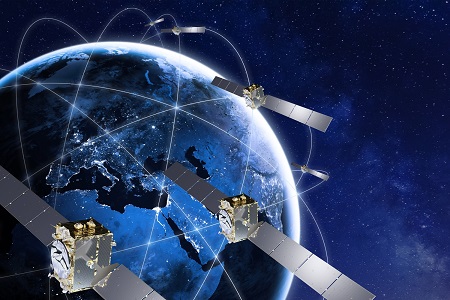Thales will play a major role on-board the second generation of Galileo and boost the performances and cybersecurity for the constellation.
 Thales Alenia Space has signed a 772m contract with the European Space Agency (ESA), acting on behalf of the European Union represented by the European Commission, to provide six satellites as part of the second generation of Galileo constellation.
Thales Alenia Space has signed a 772m contract with the European Space Agency (ESA), acting on behalf of the European Union represented by the European Commission, to provide six satellites as part of the second generation of Galileo constellation.
The first satellites of this new generation will be placed in orbit by 2024 end. With their new capabilities relying on high innovative technologies (digitally configurable antennas, inter-satellites links, use of full-electric propulsion systems), these satellites will improve the accuracy of Galileo as well as the robustness to interference and jamming and resilience of its signal. This will be the key for the upcoming digital decade and will support more security and defence usages. Among its objectives, the Galileo second-generation satellites will boost the EU industry competitiveness in the highly strategic domain of technologies for EU sovereignty.
Speaking about the contract, Hervé Derrey, CEO of Thales Alenia Space said: I warmly thank both the European Commission and ESA for the trust they put in our company to be on-board this important flagship programme for Europe. This success emphasises the capacity of Thales Alenia Space to address complex space systems. Galileo second generation will benefit from the companys unique legacy in constellations and from its strong long-standing know-how in space navigation solutions, in particular with Galileo and EGNOS.
This second generation is fitted with a robust and reliable solution, cyber-attacks protected for enhanced service availability and a 15 years operational lifetime.
Massimo Claudio Comparini, Deputy CEO and SEVP Exploration, Observation and Navigation at Thales Alenia Space, added: More robust, more reliable, cyber secured, the second generation of Galileo satellites will provide users with increased service availability. Thales Alenia Space will achieve the objectives of this challenging programme, leveraging on its design capabilities as well as its digital and state-of-art up-stream technologies coming from our competence centres in Italy, in France, in Spain and in Belgium as well as the long-standing expertise and assets for the Assembly Integration and Testing of satellite constellations in Rome.
Thales Alenia Space in Italy, the prime contractor for the satellites and the space segment related activities, will lead a multi-national team from Europes Space Community including Thales Alenia Space entities, Thales, Spaceopal, Leonardo and other partners with proven capacity coming from 14 European Countries: Italy, France, Spain, Belgium, Germany, Austria, Sweden, Czech Republic, Denmark, Netherlands, Switzerland, Romania, Poland, Greece.











































































